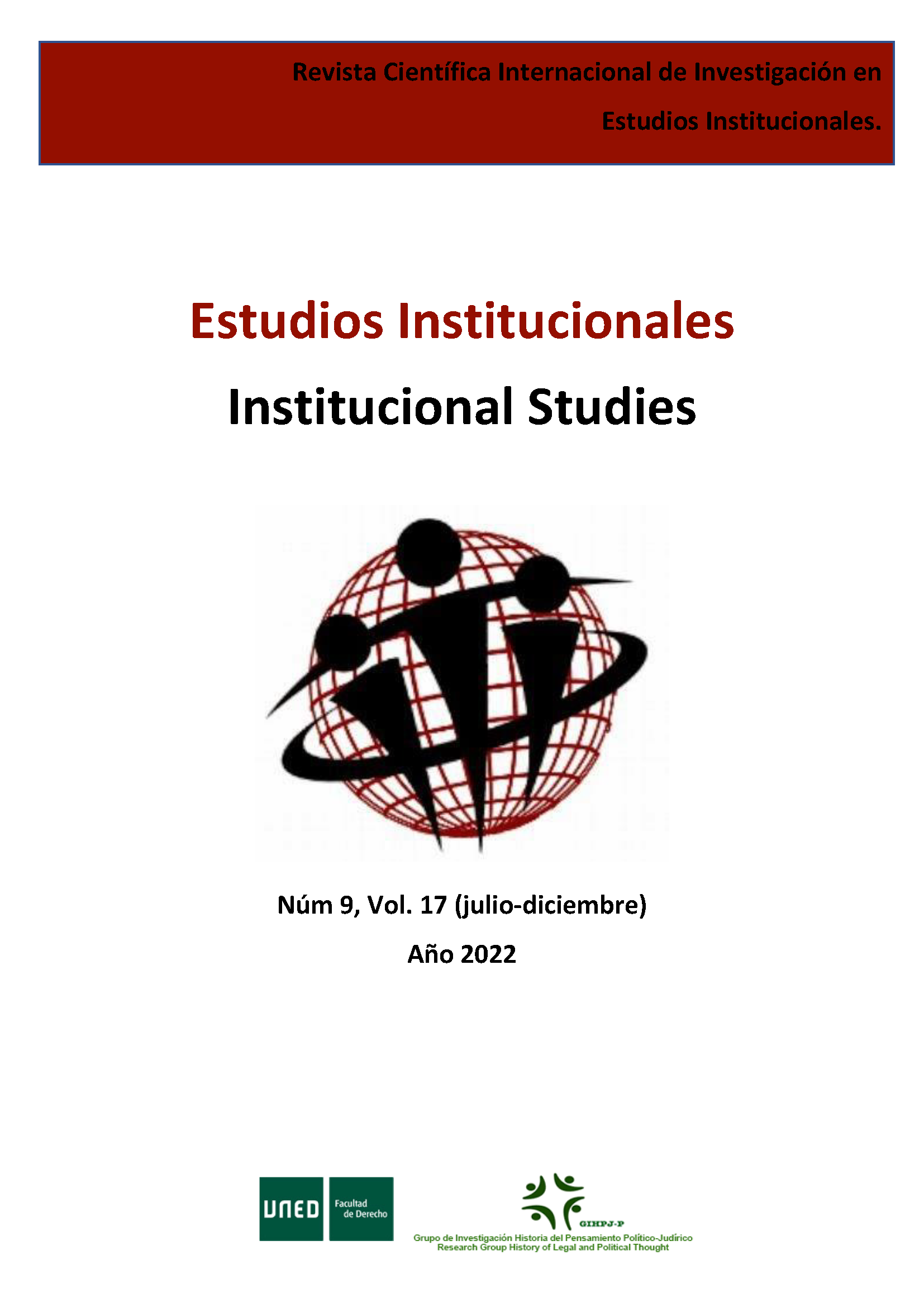Domestic violence in Venezuelan migrants.
An international perspective from Colombia and Venezuela.
DOI:
https://doi.org/10.5944/eeii.vol.9.n.17.2022.35984Keywords:
domestic violence, migration, international law, rights protectionAbstract
In the Latin American context, Colombia and Venezuela are among those countries that have recognized the importance of the family through the creation of norms, and of authorities and institutions that, within their functions, assume the protection of the family unit.
This article aims to analyze the phenomena of domestic violence and migration from the perspective of both countries, and the protection that the Colombian State grants to Venezuelan migrants residing in the national territory, for which the function of the family as the basis of society will be determined, the comparison of existing regulations will be made, highlighting that Colombia is a country with more guarantees in terms of domestic violence, the international instruments regulating the protection against the aforementioned conduct will be analyzed, the importance and impact of the phenomenon of migration of Venezuelan citizens will be highlighted and the organizations to which they can turn when they are victims of domestic violence in Colombia will be identified; through the implementation of a mixed-type research method, documentary and descriptive analysis, where secondary sources of information, norms and doctrine of a national and international nature will be consulted.
Downloads
Downloads
Published
How to Cite
Issue
Section
License
Copyright (c) 2022 Valeria Fernanda Anelka Álvarez Parales, Lina Paola Hernández Hernández, Sharikc Paola Moncada Torres, Diana Marcela Suárez Rozo

This work is licensed under a Creative Commons Attribution-NonCommercial-NoDerivatives 4.0 International License.
The authors who publish in this journal agree to the following terms:
- The Revista de Estudios Institucionales is distributed under a Creative Creative Commons Reconocimiento NoComercial NoDerivadas (by-nc-nd).
- Authors retain copyright and grant the journal the right to be the first publication of the work as well as licensed under a Share of work license, under conditions of authorship acknowledgment, for non-commercial purposes and without derivative works such as are specified in the license.
- Authors may separately enter into additional agreements for non-exclusive distribution of the version of the work published in the journal (for example, placing it in an institutional repository or publishing it in a book), with an acknowledgment of their initial publication in this journal.
- Authors are allowed and encouraged to disseminate their papers electronically (for example, in institutional repositories or on their own website) before and during the submission process, as it can lead to productive exchanges as well as more citation. earliest and largest of published works (See The Effect of Open Access)








